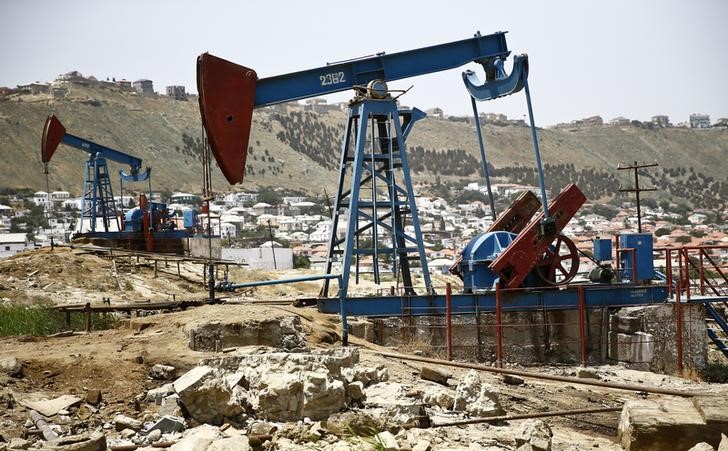Oil prices rattled once again as the G7 summit discussed new ways to pressurize Russia to end the war. The latest in the western countries’ arsenal is price caps on Russian oil. This is a proposal, and the mechanism to implement it needs to be finalized. But the price cap can only be successful if it receives full participation from all countries.
However, the world is divided on Russian oil and gas, reducing the odds of it succeeding. Analysts laid out the odds of the price cap backfiring like European sanctions on Russian oil, pushing oil prices up.
Canadian oil stocks have surged in the last few days after falling in the second half of June. iShares S&P/TSX Capped Energy Index ETF (TSX:XEG) has fallen 24% in two weeks of June and surged 12% in just three days.
European sanctions on Russian oil backfire Oil prices have been trading above US$100 per barrel since Russia invaded Ukraine on February 24. This war is significantly impacting energy prices worldwide, given Russia’s prominence in oil and gas exports. Europe depends on Russia for 30% of its oil and 39% of its natural gas needs. There is no immediate replacement for Russian oil and gas. Yet Europe imposed sanctions on Russian oil in May, which pushed WTI crude price to $122/barrel on June 8.
Many European countries pared imports from Russia, thereby reducing Russia’s oil exports to Europe. But losses from Europe were more than offset by an uptick in oil exports to Asia. According to the International Energy Agency (IEA) estimates, Russian oil export revenues surged by US$1.7 billion to about US$20 billion in May, which is above the 2021 average of US$15 billion.
While Brent crude trades at US$110- US$120 per barrel, Russia is selling oil to Asia for US$30-US$40. Such a significant price difference has made Russian oil sanctions counterproductive due to a lack of participation.
Instead, western countries suffered from high inflation fueled by energy prices. The U.S. Fed hiked interest rate by 75 basis points, pushing the country closer to a recession.
How effective could the price cap on Russian oil be? The United States can’t punish Asian countries for buying Russian oil, as it would create chaos in oil markets. Europe is already searching for Russian oil replacements, pushing oil prices to US$112. If Asian countries also look for Russia’s replacement, oil prices could surge to US$200, according to Darwei Kung, portfolio manager for commodities at DWS.
Hence, G7 countries proposed a new plan to impose pressure on Russia without impacting supply in global oil markets. The new plan calls for price caps on Russian oil. These caps could be near Russia’s production cost. This will starve Russia of oil revenue, its key source of finance, without creating a supply shortage in global markets.
One mechanism G7 countries could use to impose price caps is banning insurance and shipping services for Russian oil buyers who buy the oil above the price cap. But this mechanism could backfire depending on Putin’s reaction.
Scenario #1: The G7 sets a price cap closer to Russia’s production cost of US$3-US$4, and Russia refuses to sell oil. If Putin reduces oil imports, it could significantly impact Europe and Russia. Energy prices could make a new high. Canadian energy stocks could witness their biggest single-day jump.
Scenario #2: The G7 sets a price cap, but some countries refuse to participate. Instead, they look for alternatives to European insurance and shipping services. The Russian national reinsurance company is already the main reinsurer of Russian ships.
Scenario #3: The G7 sets a price cap, but European insurers might refuse to cover such deals, as they do not want to be involved in monitoring the price cap.
The price cap mechanism has many loosen elements, but it would keep oil prices high, as players fear Putin’s reaction of cutting exports.
Canadian energy stocks benefit in Europe-Russia oil tussle Canada would be a key beneficiary of rising oil prices, as it is the biggest oil exporter to the United States.
The post How Would a Price Cap on Russian Oil Impact Canadian Energy Stocks? appeared first on The Motley Fool Canada.
Fool contributor Puja Tayal has no position in any of the stocks mentioned. The Motley Fool has no position in any of the stocks mentioned.
